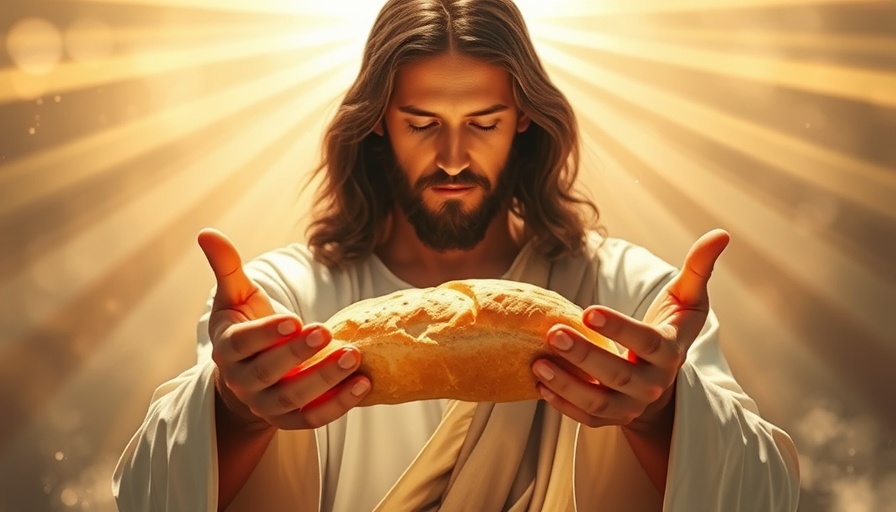
Understanding the Bread of Life: What Jesus Offers Us
In John's Gospel, particularly in John 6:25–71, Jesus refers to Himself as the "Bread of Life," a profound metaphor packed with meaning. This teaching reveals how Jesus truly satisfies the deep spiritual hunger within us. Just as bread nourishes our physical bodies, Jesus offers us eternal fulfillment that nourishes our souls.
The Importance of Context: Bread in First-Century Palestine
To comprehend Jesus’ message about being the Bread of Life, we must understand the cultural context of first-century Palestine. Bread was a staple food; it symbolized sustenance and life itself. In an era where food scarcity was prevalent, the provision of bread meant survival. By calling Himself the Bread of Life, Jesus was expressing His essential role in providing spiritual sustenance to all who believe.
A Look Back: The Manna in the Wilderness
The reference to bread also connects to the Old Testament story of the manna provided to the Israelites in the wilderness. This miraculous provision, as described in Exodus, kept the Israelites alive during their journey. Jesus’ declaration that He is the true manna emphasizes that He is the ultimate source of life and provision for our spiritual journeys. He fulfills what was foreshadowed in the wilderness, indicating that true sustenance comes not just from physical food but from a deep relationship with Him.
The Miracle of Jesus: More Than Just Physical Needs
Throughout His ministry, Jesus performed many miracles that demonstrated His ability to meet both physical and spiritual needs. One of the most notable miracles is the feeding of the 5,000, where He multiply the loaves and fish to feed the crowds. But these miracles serve a deeper purpose; they reveal Jesus’ identity and authority as the Son of God. Each act of provision points to His ability to provide for our deepest needs and longings, guiding us toward eternal life through Him.
The Central Role of Jesus’ Sacrifice
Understanding Jesus as the Bread of Life also entails recognizing the significance of His death and resurrection. Jesus’ ultimate sacrifice on the cross is central to His role as our provider. Through His death and resurrection, He offers us salvation and the promise of eternal life. This is the core of the Gospel message. His bread is not merely a symbol, but a reality that invites us into a relationship with Him that lasts beyond this life.
Our Response: Belief as a Work of God
Jesus emphasizes that coming to Him and believing in Him is not merely an intellectual assent but a divine work within us. God the Father draws us to Jesus, enabling us to recognize our need for Him and respond in faith. This act of believing is deeply personal and transformative, rooted in God's grace. It reassures us that even in a confusing world, the path to eternal life is clear through faith in Christ.
Final Thoughts: The Bread of Life as Our Guide
For committed Christians, understanding Jesus as the Bread of Life encourages spiritual growth and deeper communion with Him. As we reflect on our lives, we are invited to consider: Are we seeking Jesus to satisfy our spiritual hunger? In a world filled with uncertainty, our relationship with Christ is what gives our lives purpose and direction.
If you’re seeking to deepen your understanding of Jesus and His teachings, consider engaging with your community through study and reflection. Share your insights, ask questions, and let this powerful metaphor guide your spiritual journey.
 Add Row
Add Row  Add
Add 








 Add Row
Add Row  Add
Add 

Write A Comment